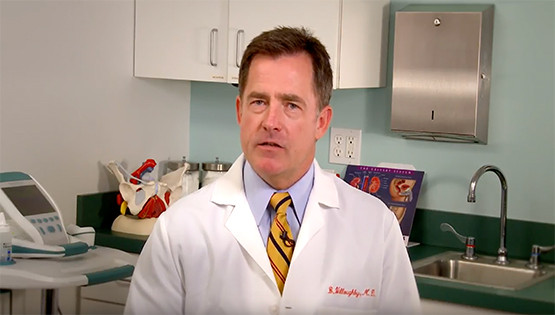Prostate Problems: Enlarged Prostate
As men age, it is common for their prostates to continue growing, however enlargement doesn’t usually cause issues until later in life. Men age forty-five and older commonly have enlargement of the prostate, additionally, more than half of men in their 60s and as many as 90 percent in their 70s and 80s have enlargement issues.
Benign prostatic hyperplasia (BPH), is a condition caused by an enlarged prostate and usually affects aging men. The prostate surrounds the urethra just below the bladder. As the prostate enlarges, it can squeeze the urethra and can irritate or block the bladder, causing men to have trouble urinating. The most common symptoms involve changes or problems urinating, such as a hesitant, interrupted, weak stream, leaking or dribbling, or more frequent urination, especially at night.
If you believe you may have an enlarged prostate, the experts at Western Michigan Urological Associates have the experience and compassionate care you need to resolve your problem. We will conduct various tests to identify your unique symptoms. Enlarged prostate treatment varies from patient to patient and can involve medication or minimally invasive therapies such as ultrasound or ablation.
Benign prostatic hyperplasia (BPH), is a condition caused by an enlarged prostate and usually affects aging men. The prostate surrounds the urethra just below the bladder. As the prostate enlarges, it can squeeze the urethra and can irritate or block the bladder, causing men to have trouble urinating.
Symptoms for an Enlarged Prostate Include:
- The frequent need to empty the bladder, as often as every one to two hours, especially during the night
- A feeling that the bladder is not empty, even after urinating
- A weak urine stream or dribbling
- An inability to delay urination once the urge to urinate arises
- Trouble starting to urinate, often requiring you to push or strain to urinate
- The need to stop and start urinating several times when the bladder is emptied
- In extreme cases, the inability to urinate at all. This is an emergency, and you should seek attention immediately
Factors That Put You at Higher Risk for an Enlarged Prostate Include:
- Increasing age
- A family history of Benign Prostatic Hyperplasia (BPH)
Tests Used for Diagnosing an Enlarged Prostate Include:
Diagnosing an Enlarged Prostate or Benign Prostatic Hyperplasia (BPH) in men usually involves different types of testing to determine the best course of action for your treatment, including:
- Evaluation – a review of medical history, a physical examination (including a digital rectal exam), and use of the American Urological Association BPH Symptom Score Index (a score based on answers to questions about symptoms)
- Urinalysis (urine test)
- Prostate Specific Antigen (PSA) – a blood test to screen for prostate cancer
- Urinary Cytology – a urine test to screen for bladder cancer
- Measuring Post-Void Residual Volume (PVR) – the amount of urine remaining in the bladder after urinating
- Uroflowmetry – a urine flow study that measures urine flow
- Cystoscopy – viewing the urethra and/or bladder using a small flexible scope
- Urodynamic Pressure – a flow study that tests the inside bladder pressure during urination
- Ultrasound of the kidney or the prostate
Treatment Options for Enlarged Prostate:
The good news is this ailment is easily treatable. So what can you expect during the treatment process? In some men, a combination of drugs may work best. If diagnosed, we will discuss all options and together, we can decide whether medication, minimally invasive therapy or surgical treatment is best for you.
While being diagnosed with an enlarged prostate may be difficult, we are here to help you every step of the way to make this process more manageable. It is important that your doctor work with you to accurately diagnose your symptoms and tailor a unique treatment plan to fit your specific needs. We at Western Michigan Urological Associates want to work with you to find the best option for you and your family. Ask Your Primary Care Provider for a Referral.
SOLTIVE™ SuperPulsed Laser System
WMURO patients can now benefit from the latest in stone removal and BPH treatment.
Common Urinary Issues
Have questions about urinary issues? Check out our interactive guide.
Low Testosterone
Get the facts on hormonal imbalance, its signs, symptoms, and statistics in the United States.



